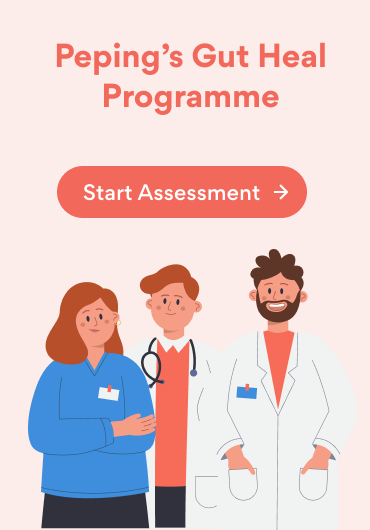Constipation is characterized by fewer than three bowel movements per week, stools that are hard, dry, or lumpy, stools that are difficult or painful to pass, or a sense that not all stool has gone. You may normally take actions to avoid or relieve constipation.
If self-care does not relieve your constipation, or if you have long-term constipation, consult a doctor. If you have constipation with either bleeding from your rectum, blood in your stool, constant discomfort in your belly, or any indicator of a medical concern, you should visit a doctor.
What are the signs and symptoms of constipation?
Constipation symptoms may include:
- Not more than three bowel motions per week
- Difficult, dry, or lumpy stools
- Stools that are difficult or unpleasant to pass a sense that not all of the feces has been passed
What is the cause of constipation?
You might be constipated for a variety of reasons, and constipation can have many causes at once. Constipation can be caused by a variety of factors, including:
- Slow stool movement via your colon caused by pelvic floor issues, particularly in women, and colon surgery
- Irritable bowel syndrome and other functional gastrointestinal diseases
- Certain pharmaceuticals and nutritional supplements
Medicines and dietary supplements that might aggravate constipation include:
- Aluminum and calcium antacids
- Anticholinergics
- Antispasmodics
- Anticonvulsants
- Calcium channel blockers
Constipation treatments available over-the-counter
Milder instances of constipation are frequently treated with over-the-counter laxatives. These are some examples:
- Bulk-forming laxatives
- Lubricants
- Osmotic laxatives
- Stimulant laxatives
- Stool softeners
Each form of laxative relieves constipation in a somewhat different way. The following are the many forms of laxatives. All of these laxatives are accessible as generics, and the majority are also available as brand-name medicines.
Laxatives with a bulk-forming action:
- Fiber supplement is another name for bulk-forming laxatives.
- They function by drawing fluid into the intestines, softening and bulking up the feces. This can aid in the production of muscular contractions in the intestines, which means that the muscles tighten or squeeze. The stool is pushed through your system by contractions.
- Bulk-forming laxatives may take a few days to act, but they are safe to use for an extended period of time.
The following are examples of bulk-forming laxatives:
- psyllium (Konsyl, Metamucil)
- FiberCon (calcium polycarbophil)
- Citrucel (methylcellulose fiber)
Bulk-forming laxatives are frequently in the form of powder or granules that you mix with water or another liquid and swallow. However, bulk-forming laxatives are available in a variety of various forms, including:
- Liquid
- Tablets
- Packets
All bulk-forming laxatives should be consumed with lots of water or another beverage. This aids in the prevention of fecal impaction, which occurs when feces becomes lodged in the gut. Bloating and stomach discomfort are the most typical negative effects of bulk-forming laxatives.
Lubricants
Lubricant laxatives cover the feces, making it easier to move through your intestines. These laxatives may start functioning within 6 to 8 hours of being taken.
Lubricant laxatives should not be used for an extended period of time. Long-term usage may cause dependency, requiring the use of lubricating laxatives to pass feces. Furthermore, long-term usage may deplete you of some vitamins, including vitamins A, D, E, and K.
The most popular lubricant laxative is mineral oil. It is available as an enema in both generic and brand-name form, Fleet Mineral Oil Enema. Mineral oil is also available as a liquid that is taken orally. The liquid is sold under the generic name “mineral oil lubricant laxative solution.”
Stomach aches and cramps are two of the most typical negative effects of lubricating laxatives. These lubricants may also cause your body to absorb fewer drugs and vitamins. Consult your doctor if you are concerned about this side effect.
Laxatives with osmotic action
Osmotic laxatives maintain water in the intestines, softening stool and causing more frequent bowel movements.
Some of these items are also known as saline laxatives, such as:
- Calcium hydroxide
- Sodium phosphate
- Magnesium citrate
Osmotic laxatives are available in the following forms:
- Enemas
- Suppositories that you consume orally
These laxatives take effect rapidly. The oral forms may be effective in 30 minutes. Suspension and enemas may act even faster.
Osmotic laxatives include the following:
- Phillips Milk of Magnesia contains magnesium hydroxide.
- Citroma (magnesium citrate)
- MiraLAX (polyethylene glycol)
- Fleet Saline Enema (sodium phosphate)
Before administering these drugs to older persons, children, or those with heart or renal issues, the FDA suggests consulting with a doctor.
Long-term use of osmotic laxatives is normally safe, but you should drink lots of water to avoid getting dehydrated. Furthermore, some patients claim that osmotic laxatives stop functioning if used too frequently.
The following are the most prevalent osmotic laxative adverse effects:
- Diarrhea
- Stomach cramps
- In rare circumstances, diarrhea can cause dehydration.
Laxatives with stimulants
Stimulant laxatives cause the muscles in your intestines to contract, causing the stool to travel through the intestines. Oral stimulant laxatives often function within 6 to 10 hours.
Stimulant laxatives are available in the following forms:
- Capsules
- Oral liquids
- Enemas
- Suppositories
Stimulant laxatives should not be used as long-term therapy. This sort of drug may cause your body to become tolerant. If this occurs, your constipation will worsen after you discontinue the laxative.
Softeners for stools
Stool softeners soften bowel movements by adding water and lipids to the stool. These items are frequently prescribed to reduce intestinal straining, which is especially crucial if you’ve recently had surgery or given birth.
Stool softeners often take 1 to 3 days to take action. Docusate is a typical stool softener (Colace, DulcoEase, Surfak).
It is available in the following forms:
- Tablet
- Capsule
- Enema
- Suppository
Stool softeners have few negative effects and are safe to use for an extended period of time.
Medication combinations
Two separate OTC laxatives are sometimes blended into a single medication.
The majority of combo products include a:
- Stool softener
- Laxative
- Stimulant
When to Consult a Doctor for Constipation
The availability of over-the-counter laxatives might make it simple to cure constipation on your own. However, in some circumstances, consulting with your doctor is required. Call your doctor if you are constipated and you:
- Go more than three days without having a bowel movement
- If you have been using laxatives for more than a week and are still constipated.
- If you have had a recent, unexplained weight loss of 10 pounds or more.
- If you have severe abdominal pain or cramps, blood in your stool, weakness, dizziness, or fatigue.
Prescription drugs for constipation
If OTC treatments do not relieve your constipation, consult your doctor. They could suggest a prescription medicine. Long-term usage of these drugs is typically safe.
Prescription constipation drugs are usually prescribed for persons who have:
- Constipation that lasts a long time
- IBS-C (irritable bowel syndrome with constipation)
- Those suffering from opioid-induced constipation.
These drugs are not intended to give instant relief. They do not always result in a bowel movement within minutes to hours, as many OTC laxatives do. Instead, if you use prescription medication on a daily basis, your number of bowel movements per week should increase.
The majority of patients who take these drugs have a bowel movement within the first 24 hours, with more frequent bowel movements occurring over the first week or two of treatment.
Common prescription constipation treatments available are:
- Linaclotide
- Plecanatide
- Lubiprostone
- Methylnaltrexone
- Naloxegol
- Naldemedine
Alternative Treatment Options For Constipation
Other treatment options for constipation, in addition to OTC and prescription medications, may enhance long-term intestinal function.
Home remedies for chronic constipation include making lifestyle changes like:
- Maintaining proper hydration
- Consuming fiber-rich meals including fruits, vegetables, and whole grains
- Participating in frequent physical exercise
- Having bowel motions whenever you feel the need to
- Avoiding excessive laxative usage
Biofeedback treatment
- If you have issues with the muscles that regulate your bowel motions, your doctor may offer biofeedback treatment to help you retrain them.
- You may modify how your muscles operate by employing biofeedback treatment.
Surgery
- If alternative therapies fail, your doctor may consider surgery to relieve an anorectal obstruction caused by rectal prolapse.
- If your colon muscles do not function properly and you have long-term constipation, your doctor may undergo surgery to remove your colon.
- If your doctor advises surgery, inquire about the advantages and disadvantages.
What can I do to avoid constipation?
- Get lots of exercise and eat a healthy, fiber-rich diet. Fruits, vegetables, legumes, and whole-grain breads and cereals are all excellent food choices that are high in fiber.
- Water and fiber both encourage bowel movement.
- The skins of fruits like apples provide the bulk of the fruit’s dietary fiber. The highest levels of fiber are found in fruits like strawberries that have edible seeds. The dietary fiber in bran is excellent. Consume bran cereal on its own or include it into other meals, such as soup or yogurt. Constipated people should up their daily fiber intake to between 18 and 30 grams.
- Get your daily water intake up to eight 8-ounce glasses. (Some people may get constipation after drinking milk.)
- Caffeine-containing beverages, including coffee and soft drinks, can have a drying effect on the body. It’s possible you should abstain from these drinks until your bowel movements normalize.
- It’s important to maintain a regular exercise routine.
- Magnesium supplements are helpful for treating occasional constipation. (Magnesium supplements aren’t for everyone. Consult your healthcare provider before using.
- When you feel the need to defecate, go ahead and do so. Do not delay.
Takeaway
Constipation is a condition that you may experience:
- Not more than three bowel motions per week
- Hard, dry, or lumpy stools that are difficult or unpleasant to pass a sense that not all of the stool has passed
However, everyone’s bowel movement habits vary, and only you know what’s typical for you.
Constipation is not a sickness, but it might be a sign of another medical issue. Constipation can last for a short or extended period of time.













